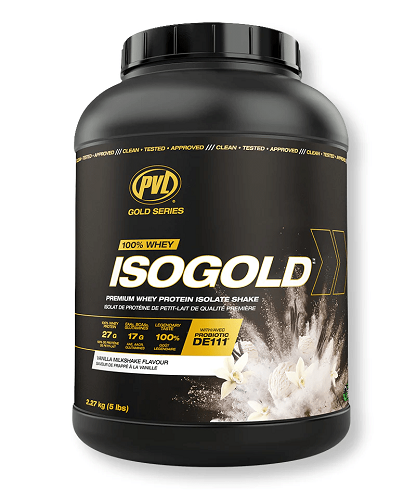What Is The Difference Between Whey And Whey Isolate?
Whey protein is one of the two primary proteins found in milk, the other being casein. When cheese is made, the whey separates from the curd and is collected, filtered and dried to make whey protein powder. Whey protein concentrate contains anywhere from 29 to 89 percent protein and also typically has low levels of fat and lactose. Whey protein isolate contains at least 90 percent protein and undergoes additional processing. Most of the people are confused to buy whey protein or isolate.
Whey is one of the two primary proteins found in milk, the other being casein. The difference between whey and whey isolate is that while both are derived from cheese production, they're processed differently.

Whey Protein Powder:
A byproduct of cheese production, whey protein powder can be used to supplement your diet or even make your own homemade protein shakes! If you have allergies to dairy products but still want to get some protein in your diet, this might be an option for you since it's low-fat and easy on digestion compared with other full-fat dairy products like yogurt or ice cream; however there has been some debate about whether or not consuming too much of certain types of high-quality isolates can cause digestive issues such as bloating or gas which may lead someone down a path towards developing irritable bowel syndrome (IBS).
When cheese is made, the whey separates from the curd and is collected, filtered and dried to make whey protein powder. Whey is a by-product of cheese making, and it's what separates from the curd. Whey protein powder is made from whey, so if you're looking for some good news about this stuff—it's good for muscle growth and recovery!
There are two types of whey: lactose-free (which has more nutrients than regular) and lactose-rich (which contains less). Whey protein concentrate contains anywhere from 29 to 89 percent protein and also typically has low levels of fat and lactose. It's a processed form of whey protein that's often used in shakes, smoothies and other drinks because it has a higher concentration of the essential amino acids than other types of whey.
Whey Isolate Protein:
It
is made by removing about 80% or more of the water from milk-based
proteins (such as casein) through an enzymatic process that uses
microorganisms such as lactobacillus acidophilus or bifidobacterium
bifidum cultures; alternatively enzymes may be used alone without
microorganisms such as papain enzymes from papaya seeds which removes
most fats from milk fat cells leaving just pure casein molecules
suspended in liquid medium (without any other components).
Whey protein isolate contains at least 90 percent protein and undergoes additional processing to remove most of the fat and lactose.
Whey protein isolate is the purest form of whey protein, and it undergoes additional processing to remove most of the fat and lactose. In addition to being higher in quality than concentrate, isolate has a lower sugar content than concentrate. This makes it easier to digest and absorb by your body since you’re not getting as much sugar or carbs in your system when you consume it.
Conclusion
Whey isolate is great for anyone who wants to boost their protein intake and get the benefits of milk without the lactose. For those who are sensitive to dairy products, this can be a great option as it’s free from all of the common allergens found in regular milk.
If you want more protein but don’t like whey isolate products then there are other options out there, you can directly buy whey protein from online store. ! Whey concentrates or isolates can both be used in different ways depending on your goals and needs so don’t forget about finding what works best for you!
Comments
Post a Comment